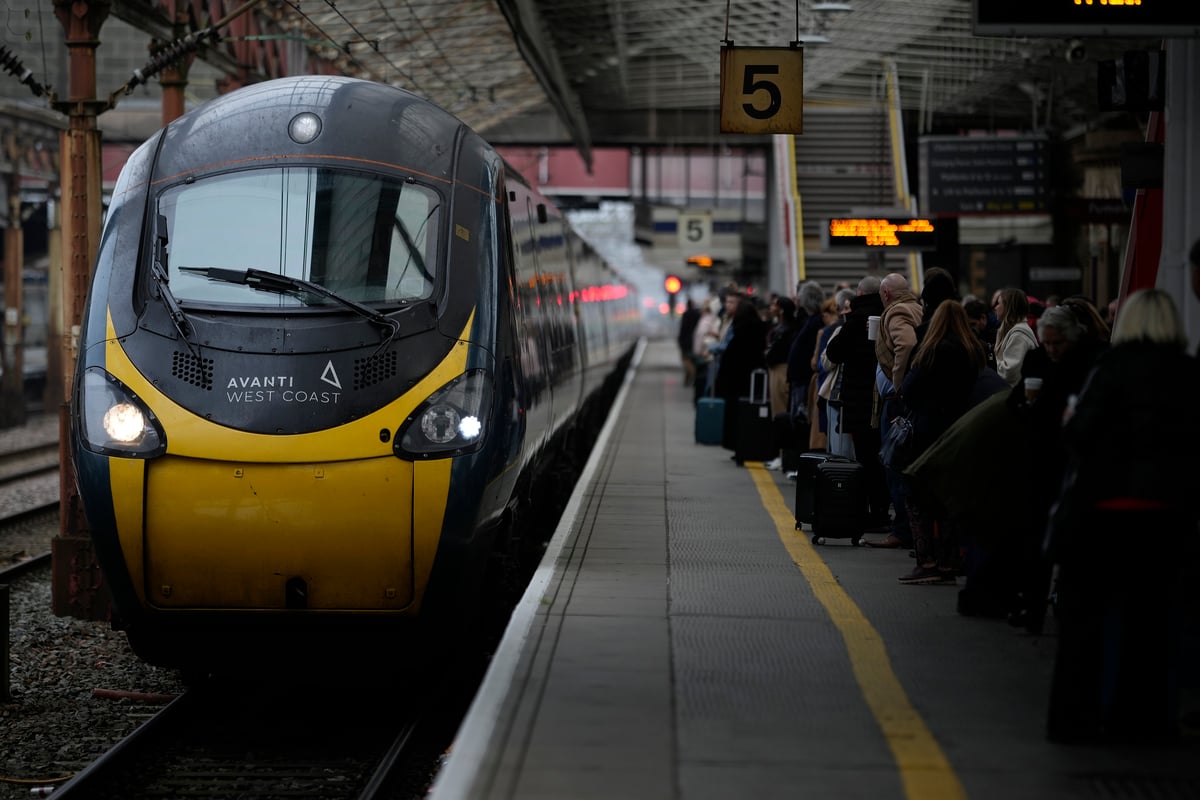Business
UK Rail Fares Set to Increase by 5.8%, Commuters Brace for Higher Costs

As of March 2024, UK rail fares are expected to rise by 5.8%, significantly impacting commuters across the country. This increase comes at a time when many passengers are already grappling with frequent delays and disruptions in service. The new pricing structure is set to strain budgets, particularly for those relying on season and flexible tickets for their daily commutes.
Delays and reliability issues have plagued the UK rail system, leading to frustrations among travelers. According to the Office of Rail and Road, the ongoing performance issues have not only inconvenienced passengers but also raised concerns about the value of rail services in the UK. The fare increase will likely amplify these concerns, resulting in commuters facing hundreds more in travel costs over the year.
Impact on Commuters and Revenue Generation
The fare hike is anticipated to generate additional revenue for the railway operators, which have been struggling with the financial fallout from the COVID-19 pandemic. In the past few years, ridership has fluctuated, and many rail companies have sought ways to recover lost income. The increase in fares, while aimed at addressing financial challenges, raises questions about affordability for everyday commuters.
Passengers using season tickets for regular travel could see their annual costs surge significantly. For example, a typical season ticket from London to Birmingham could rise by more than £200, adding to the financial burden faced by workers commuting to major cities. Those who purchase flexible tickets for occasional travel may also find themselves paying considerably more.
Responses from Stakeholders
Responses from various stakeholders have surfaced, with some commuters expressing their dissatisfaction with the fare increase. Many argue that the rail system must improve its reliability and service quality before imposing higher costs. British Rail, the former nationalised operator, has been referenced in discussions about service quality, with some commuters wishing for a return to a more centralized and accountable management structure.
Railway unions have also voiced their concerns, emphasizing that passengers should not bear the brunt of financial difficulties faced by rail companies. Union representatives argue for a more balanced approach, wherein improvements in service standards accompany fare increases.
As the UK prepares for this fare adjustment, the impact on commuter behavior remains to be seen. There is a possibility that some may seek alternative modes of transport, such as buses or carpooling, to mitigate higher travel costs.
In summary, the anticipated 5.8% increase in UK rail fares will likely have a profound effect on commuters, prompting discussions about service quality and financial fairness within the rail system. As the situation develops, the focus will remain on how these changes will affect everyday travelers and the broader implications for public transportation in the UK.
-

 Entertainment2 months ago
Entertainment2 months agoAnn Ming Reflects on ITV’s ‘I Fought the Law’ Drama
-

 Entertainment3 months ago
Entertainment3 months agoKate Garraway Sells £2 Million Home Amid Financial Struggles
-

 Health2 months ago
Health2 months agoKatie Price Faces New Health Concerns After Cancer Symptoms Resurface
-

 Entertainment2 months ago
Entertainment2 months agoCoronation Street’s Carl Webster Faces Trouble with New Affairs
-

 Entertainment2 months ago
Entertainment2 months agoWhere is Tinder Swindler Simon Leviev? Latest Updates Revealed
-

 Entertainment3 months ago
Entertainment3 months agoKim Cattrall Posts Cryptic Message After HBO’s Sequel Cancellation
-

 Science4 weeks ago
Science4 weeks agoBrian Cox Addresses Claims of Alien Probe in 3I/ATLAS Discovery
-

 Entertainment2 months ago
Entertainment2 months agoOlivia Attwood Opens Up About Fallout with Former Best Friend
-

 Entertainment3 months ago
Entertainment3 months agoMarkiplier Addresses AI Controversy During Livestream Response
-

 Entertainment3 months ago
Entertainment3 months agoMasterChef Faces Turmoil as Tom Kerridge Withdraws from Hosting Role
-

 Entertainment4 months ago
Entertainment4 months agoSpeculation Surrounds Home and Away as Cast Departures Mount
-

 World2 months ago
World2 months agoCole Palmer’s Mysterious Message to Kobbie Mainoo Sparks Speculation





















